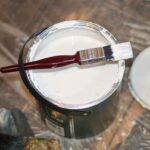The transition from makeup to skincare was one of many remarkable consumer shifts that gained traction in 2020, and over time, clean beauty established itself as a major player in the personal product market.
Although not regulated in the same way that organic food is, ‘clean beauty’ makeup, haircare, and skincare products are typically marketed as ‘non-toxic’ and lacking ingredients known to be irritants or cause negative health effects, such as parabens and synthetic fragrances. They may also carry labels certifying they are ‘cruelty-free,’ meaning not tested on animals, are ‘eco-friendly’ to the environment, and contain non-GMO, vegan, or organic ingredients.
Is this ingredient-conscious trend growing in strength among consumers or fading with the changing times? The latest CivicScience polling data show that interest in clean beauty continues its strong upwards trajectory; compared to 2021, respondents reported a 30% increase in overall interest.
Department stores have the best potential for capturing sales from those with clean skincare products on the brain. According to CivicScience data, stores such as Macy’s and Kohl’s attract the ingredient-conscious, with specialty retailers like Sephora and Ulta trailing closely behind.
More than a third of people who purchase skincare products at supercenter stores such as Target and Walmart are strongly interested in clean beauty products. That’s good news for certain brands commonly sold at these retailers, such as Dove’s line of personal care products. Viewed favorably by over half of CivicScience respondents, Dove products especially have the attention of consumers with an eye on the clean beauty industry. In fact, those who view Dove the most favorably also report the greatest interest in clean personal care products, which presents a huge opportunity for the brand to boldly articulate its ingredient offerings.
Other insights from the data:
- Young adults aged 18-24 are the most interested in clean beauty products, with 68% at least ‘somewhat interested.’ That’s followed closely by 25- to 34-year-olds.
- Women are significantly more likely than men to search out clean beauty products – 36% of women report being ‘very interested’ in clean beauty, compared to just 18% of men. That said, there is still a market for clean products among men, given that a total of 41% say they are at least ‘somewhat interested.’
- Among people who purchase personal care products, more than 4-in-10 are likely to pay close attention to the ingredient list – 18% ‘always’ read the ingredients on the label and an additional 24% ‘often’ do when considering a purchase. Clean beauty buyers are nearly three times as likely to regularly read ingredients before buying compared to those not interested in clean beauty products.
Clean beauty continues to generate interest – and sales – in the personal product market with no signs of slowing down. If you’re interested in leveraging even deeper insights into the trend to accelerate your business, let’s chat.








